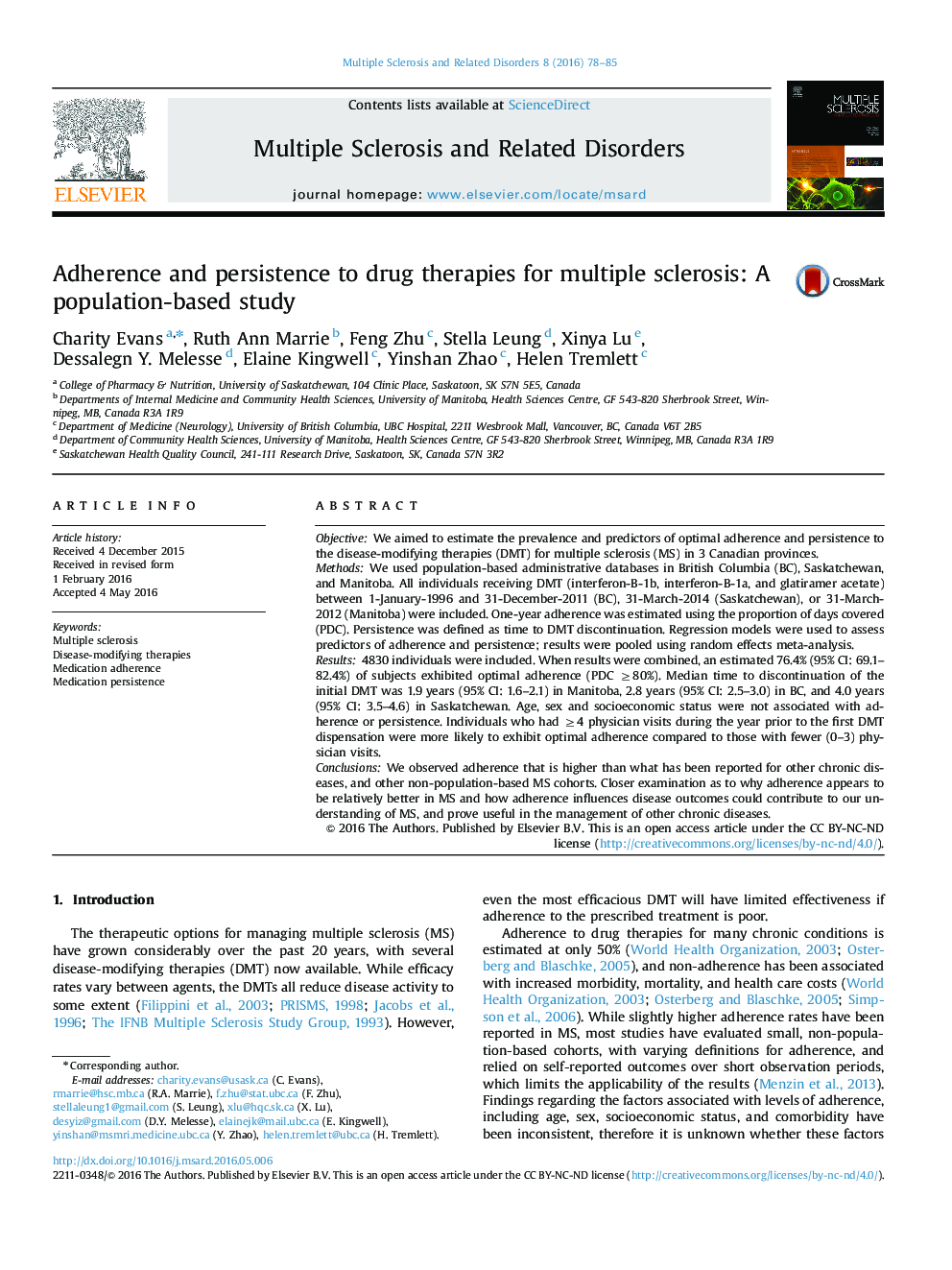| Article ID | Journal | Published Year | Pages | File Type |
|---|---|---|---|---|
| 5912310 | Multiple Sclerosis and Related Disorders | 2016 | 8 Pages |
â¢Adherence and persistence were examined in a large population-based MS cohort.â¢Optimal adherence was observed in 76% of patients.â¢Adherence was higher than previously reported results from other chronic diseases.â¢Adherence was higher than previously reported in non-population-based MS cohorts.â¢Sociodemographic factors were not consistently associated with adherence.
ObjectiveWe aimed to estimate the prevalence and predictors of optimal adherence and persistence to the disease-modifying therapies (DMT) for multiple sclerosis (MS) in 3 Canadian provinces.MethodsWe used population-based administrative databases in British Columbia (BC), Saskatchewan, and Manitoba. All individuals receiving DMT (interferon-B-1b, interferon-B-1a, and glatiramer acetate) between 1-January-1996 and 31-December-2011 (BC), 31-March-2014 (Saskatchewan), or 31-March-2012 (Manitoba) were included. One-year adherence was estimated using the proportion of days covered (PDC). Persistence was defined as time to DMT discontinuation. Regression models were used to assess predictors of adherence and persistence; results were pooled using random effects meta-analysis.Results4830 individuals were included. When results were combined, an estimated 76.4% (95% CI: 69.1-82.4%) of subjects exhibited optimal adherence (PDC â¥80%). Median time to discontinuation of the initial DMT was 1.9 years (95% CI: 1.6-2.1) in Manitoba, 2.8 years (95% CI: 2.5-3.0) in BC, and 4.0 years (95% CI: 3.5-4.6) in Saskatchewan. Age, sex and socioeconomic status were not associated with adherence or persistence. Individuals who had â¥4 physician visits during the year prior to the first DMT dispensation were more likely to exhibit optimal adherence compared to those with fewer (0-3) physician visits.ConclusionsWe observed adherence that is higher than what has been reported for other chronic diseases, and other non-population-based MS cohorts. Closer examination as to why adherence appears to be relatively better in MS and how adherence influences disease outcomes could contribute to our understanding of MS, and prove useful in the management of other chronic diseases.
